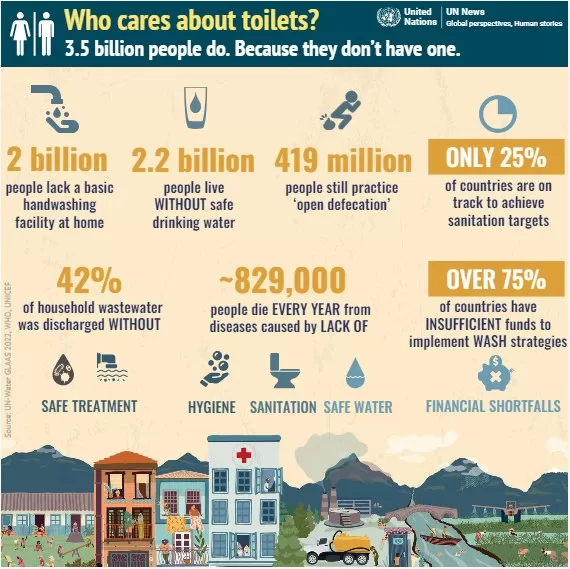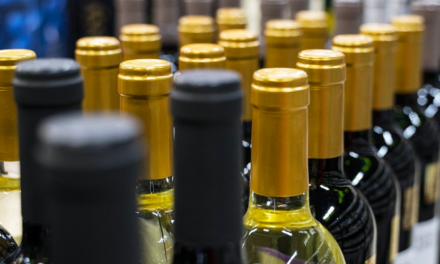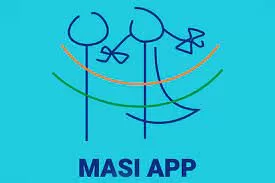Innovation abounds in the race to broaden access to clean water and sanitation around the world on World Toilet Day, marked on 19 November.
In line with this year’s theme of accelerating change, innovators have been part of ongoing efforts to address the needs of some of the world’s 3.5 billion people living without safe toilets.
From a Nepalese woman who prompted her village to improve hygiene to a fresh game plan launched in 2022 by the UN Children’s Fund (UNICEF), these game changers are advancing progress towards the 2030 Agenda’s ambition to achieve clean water and sanitation for all through its Sustainable Development Goal (SDG) 6.
Award-winning eco-toilet
Saniwise Technologies, a firm made up of a team of young entrepreneurs, designed an award-winning eco-toilet that also produces manure and chicken feed.
“Having been brought up by a single mum in a low-income area, I understand the challenges,” said Chelsea Johannes of Saniwise. “Toilets are hard to maintain, and no one wants to contribute money to empty them properly. That’s one of the reasons we set up Saniwise.”

Using its blue, well-ventilated prototype, the Saniwise team aims to make many more toilets for the community, she said.
It has already won seed money to do so, after its prototype took second prize at a global competition held by Generation Unlimited, which was founded by UNICEF, Microsoft, IKEA and other partners to foster innovations like these.
Green prototype
Made of recycled materials, including plastic waste, the prototype is well-ventilated and uses dry toilet technologies. After visiting the toilet, black soldier fly larvae churn human waste into manure.
“This is the black soldier fly larvae,” she said, pointing to several white grubs in the toilet pan. “They’re digesting the waste. You can see that it already looks more like soil. In four days’ time, it will be ready to sell as manure.”
‘Young people helping themselves’
Saniwise Technologies also sells the by-products to local farmers, like 77-year-old John Ochieng.
On a hot, humid morning on Mr. Ochieng’s farm, he strides through the fields in bare feet. Along the way, he collects a bag of manure from Ms. Johannes and her colleagues, after meeting them at a nearby lagoon.
“I was curious about the toilet they had built,” he said. “They told me that it makes manure and chicken feed, so I bought some samples from them.”

The manure is already helping his farm.
“I like the products,” he said. “The manure helps my crops grow very green and fruitful. When I gave my chickens the feed, they enjoyed it. It’s good to see young people helping themselves.”
Find out more about how the UN is helping to accelerate progress on improving clean water and sanitation around the world here.











